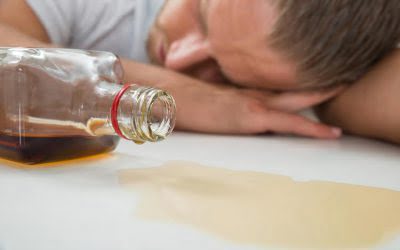Dr. McGee suggests giving an inservice on blogging for physical therapists. A blog and/or social media presence can help attract patients, of course, but the benefits don’t stop there. Pleasant memories with loved ones and favorite places and things are our cornerstones, evoking positive, sentimental emotions that promote healthy recovery.

Finding Joy in Sobriety
You can use this activity to help your clients learn the difference between closed questions and open-ended questions, and how each can affect their conversations. For example, open-ended questions allow others to more effectively communicate their thoughts and feelings with explanations. Think of emotional problems you face, such as depression or a bad temper. Then write about or discuss how these emotions might serve you, such as the way your depression forces you to slow down and rest when you’re overwhelmed. For those who prefer the written word, journaling workshops offer a safe space to pour out thoughts and feelings onto paper. Guided writing exercises help participants explore their inner landscape, often uncovering insights that might otherwise remain buried.

Using AI to automate Group Therapy Notes
Your steps should increase in difficulty, requiring participants to listen carefully. When you’ve gone through all the steps to draw the object, compare the drawings to see who listened most accurately. This exercise helps your clients practice active listening so they can pay attention and internalize what others are communicating to them.
Group Therapy Activities FAQs
This practice shifts attention from negative thinking and can be particularly powerful in cultivating optimism and reducing Sober living house feelings of despair or hopelessness. Relapse prevention planning is absolutely critical in recovery because it provides individuals with a proactive strategy for staying sober. In a group setting, there’s an opportunity to learn from each other’s experiences and share practical ideas for avoiding relapse. Talking about the effects of addiction in a group setting helps with developing a greater sense of accountability and responsibility. It also helps with developing empathy, as it allows for the opportunity to truly recognise the shared impact of addiction on everyone involved. By openly discussing the consequences, people are able to gain motivation to stay committed to their recovery journey.
- The challenges presented with my work keeps me engaged and motivated.
- Visualization techniques empower group members to create a mental image of their desired future, enhancing goal-setting in recovery.
- Gratitude circles provide a structured opportunity for group members to reflect on and share positive aspects of their lives.
These workshops equip https://ecosoberhouse.com/ participants with coping mechanisms that contribute to long-term sobriety and emotional well-being. It is crucial to select activities that resonate with the group, nurturing a sense of support, growth, and shared experience, as these are fundamental elements of group therapy. You can enhance your skill in customizing activities for different groups and settings with practice and feedback. Focusing on a common patient population means your fellow therapists will find immediate value in your presentation. For example, many PTs work with patients who have dementia, but we’re not always confident in managing the challenges that arise when working with this population. She points out that there are multiple ways to manage distress behaviors and increase participation in therapy sessions.
- When planning these activities, it’s important to consider each resident’s individual needs, preferences, and abilities, ensuring that every activity is accessible, engaging, and enjoyable.
- Find confidential, 24/7 support with our local addiction help hotline in Dayton Ohio.
- As they regain financial stability, these individuals will gain skills to support themselves and their families.
- By injecting a dose of enjoyment into the process, we’re not just sugar-coating the bitter pill of addiction; we’re creating an environment where healing can flourish organically.
Personal Coat of Arms
- These groups often combine elements of psychotherapy with practical exercises designed to develop effective coping mechanisms.
- Pass out pieces of paper with drawings of a large bottle on them, with two lines drawn across the bottle to create three different layers inside.
- Man and the planet of one’s treasures art therapy ideas.
- Gratitude circles and positive affirmations might sound a bit new-age, but they’re grounded in solid psychological research.
- This shared experience can strengthen the sense of community within the group, making members feel more connected and understood.
These recovery group topics highlight just some of the issues that can be discussed in therapy. Stress is often a trigger for those who abuse drugs or alcohol. Self-care is the antidote because it can relieve stress and improve health. Exploring these individual options and creating custom plans can be critical to reducing stress today and in the future.

He adds that patients can switch classifications during their sessions based on how they respond to treatments. With so many people working from home these days, we’ll likely see an increased need for in-home ergonomic assessments. “Patients might not have the same money to spend on their workstation as their employer does,” explains substance abuse group activities Julie McGee, PT, DPT, who runs the website Running From Injury. Any presentation based on a sport, rather than a body part, is automatically more engaging. This type of presentation has the added benefit of potentially attracting a new cohort of patients to your facility.